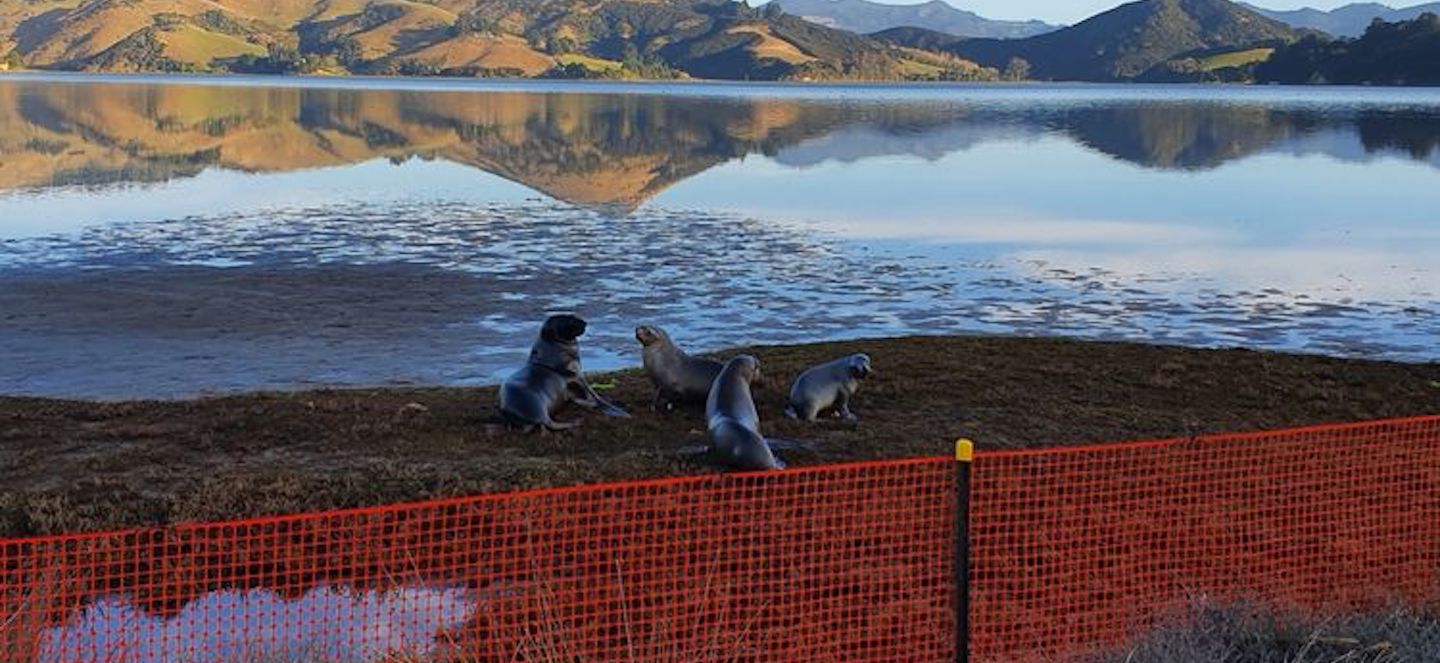PhD student Veronica Frans is bringing home the realities -- whimsical, wonderful and dangerous -- of successes in wildlife conservation as her article "Integrated SDM database: Enhancing the relevance and utility of species distribution models in conservation management" appears on this month's Methods in Ecology and Evolution cover. An expansion of the work appears in today's The Conversation.
Frans is in the Center for Systems Integration and Sustainability and the department of fisheries and wildlife. She studies under center director Jianguo "Jack" Liu. She also is a member of the Ecology, Evolution, and Behavior Program.
The paper was first published in November 2021 and has received global attention, reaching the top 1% all-time Altmetric Attention Score within the first week of its debut. Being featured in news outlets such as the New York Times, Washington Post, Smithsonian Magazine, and Tagesspiegel, Frans has been spreading awareness on the world’s rarest sea lion and showing opportunities for conservation and coexistence with other species in human landscapes.
This month’s cover image shows New Zealand sea lion pups at a recently recolonized site. This endangered species was extirpated from mainland New Zealand, but is breeding there again after almost 200 years — a sign of hope. Identifying new suitable habitats helps manage recolonization; however, these sea lions are returning to a modified landscape. Traditional species distribution models (SDMs) are of limited use to range-expanding species because they cannot model new habitats or human impacts outside their current range. SDM results are also complex and difficult for real-world conservation practitioners to use.
In their article, Frans et al. use the New Zealand sea lion to introduce the integrated SDM database (iSDMdb), an extended habitat suitability assessment for practical use. It is a spatial database of SDM-predicted sites that pairs predictions with expert knowledge to make informative data fields on predictions, uncertainty, human impacts, restoration features, novel preferences in novel spaces, and management priorities.
The iSDMdb is user-friendly and includes an interactive map for non-GIS users and public access. At a critical time when there are many range-expanding or -shifting species affected by changing climatic and anthropogenic pressures, the iSDMdb fills an important gap in conservation applications and communication.
The work was written with an international team of seven coauthors, including CSIS PhD student Yuqian Zhang.
Read the full article at here.

